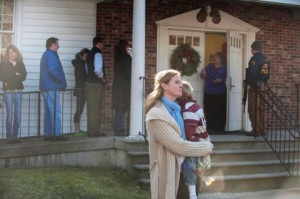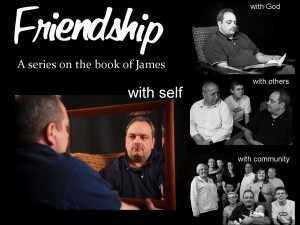 This week I met with a mother who lost twins in an early birth. She wanted to meet to talk about her anger with God. She wanted to try to get pregnant again but wasn’t sure she could trust God with another pregnancy and birth. She wanted to be able to have a relationship with God going into the future, but wasn’t sure how to do so. She wanted help for how to move forward.
This week I met with a mother who lost twins in an early birth. She wanted to meet to talk about her anger with God. She wanted to try to get pregnant again but wasn’t sure she could trust God with another pregnancy and birth. She wanted to be able to have a relationship with God going into the future, but wasn’t sure how to do so. She wanted help for how to move forward.
I reminded her that Jesus was God’s son, and when he was unjustly executed on a cross God knew what it meant to lose a child. I told her that I don’t believe everything happens for a reason (see my sermon following the Sandy Hook shooting for more thoughts on why everything doesn’t happen for a reason). I believe that God gives both humans and creation a measure of freedom. This means that sometimes humans and creation are just plain broken, and stuff happens. I also don’t believe God is the deist watch-maker who creates the watch, winds it up, steps back and lets it run. God does intervene in history.
The question becomes, “Why did God not intervene when I needed God most?” I don’t have an answer to that question, and I don’t believe we will have specific answers this side of heaven, but being a relatively new parent myself, I have gained a sense of how God might work. Sometimes I intervene in my sons’ lives and other times I allow them to struggle with whatever situation they find themselves in. I am an imperfect parent, and I make mistakes, but even as an imperfect parent I know that if I don’t allow some hardship in my sons’ lives, they won’t grow up to become mature healthy men.
By the end of our conversation, this mom asked me to provide a list of suggested resources that we had talked about. Here is that list and why I recommended them.
The Psalms
The Psalms are the prayer book of the Bible. They are honest, gritty, raw, and sometimes quite shocking. The Hebrew word for The Psalms is Te’hillim which means “praises.” The odd thing about calling The Psalms a book of praises is that there are more laments in it than there are praises. The ancient Hebrews apparently had a different way of conceptualizing what it means to praise God. Over and over again the Psalms wrestle with God by asking God question after question. Some helpful Psalms for a situation like this might include:
Psalm 6 – I drench my couch with tears.
Psalm 13 – How long, Lord? How long?
Psalm 22 – My God, My God, Why have you abandoned me? (This is the Psalm that Jesus prayed while being executed on the cross)
Almost every psalm of lament eventually turns to praise. But there are two psalms that do not make that turn. Perhaps this suggests that there are times when it is appropriate to not turn your prayer of lament and questioning back to praise. Those psalms are:
Psalm 39 – My anguish increased…
Psalm 88 – Darkness is my closest friend.
Along these lines, a sermon that might be helpful is Prayers that Stick – CRAP!
Two books that could be helpful for engaging the Psalms at a deeper level are Ellen Davis’ Getting Involved with God and Philip Yancey’s The Bible Jesus Read. A helpful version of the Psalms for children is Psalms for Young Children by Marie-Helene Delval.
Prayer Journal
Most people pray in their heads and find themselves struggling with wandering thoughts and forgetful memories. A prayer journal can act as a reminder of where you’ve been and where you’ve come. The Bible tells stories of people regularly setting up pillars or altars or piles of rocks (called an “ebenezer”) to remind them of what God has done in their lives. A prayer journal can be a reminder of God’s slow and sometimes imperceptible movement in one’s life.
Use the prayer journal to write letters to God. These don’t have to be flowery theological language. Use simple language. Consider patterning what you write after The Lord’s Prayer:
Our Father in heaven, hallowed be your name
(Address God as a loving parent who is intimately interested in you)
Your kingdom come, your will be done, on earth as it is in heaven
(Ask God to accomplish God’s purposes in your life)
Give us today our daily bread
(Tell God what you need)
And forgive us our sins as we forgive those who sin against us
(Tell God where you’ve messed up)
Lead us not into temptation but deliver us from evil
(Ask God to help you do what’s right today even when you’re tempted to do evil)
A helpful sermon about Jesus’ prayer life might be: Dancing with God – Only One Lead.
Books
There are several books that could be helpful for someone struggling with intense grief or suffering. The first is C.S. Lewis’ A Grief Observed. C.S. Lewis, the author of The Chronicles of Narnia, was a giant of the faith in his day, and when he lost his beloved wife to cancer, he penned this book anonymously. It describes his struggle with God in a very forthright way. Eventually he claimed the book as his own.
Another more recent book that my wife recommends is One Thousand Gifts by Ann Voskamp. At a very young age, Voskamp’s sister was crushed under a delivery truck at their house. This book is her struggle with God following that event.
A third book that many have found helpful who have experienced some kind of significant trauma or suffering is The Shack by William Paul Young (My review can be found here). This is a novel about a father whose child is abducted and who spends a period of time with a creatively imagined Trinitarian God (“The Father” is a black woman) in a shack in the mountains.
Sermon Series
I try to preach an entire series on the question of suffering every other year. Most recently I adapted Craig Groeschel’s series Why? for SCC. This series included the following sermons:
Why do bad things happen to good people?
Why doesn’t God answer my prayers?
Why don’t I always feel God?
A favorite series of mine on the topic of suffering is Adam Hamilton’s Why? Hamilton is the pastor of the largest UnitedMethodistChurch in America. His preaching style is not flashy, but it is clear, straightforward, and honest.
Final Thoughts
Losing a child or loved one is quite possibly one of the hardest things any of us will ever experience. I think it is important to recognize that asking questions of God or even being angry with God is in itself an act of faith. The opposite of love is not anger but indifference. By asking God questions and expressing anger, we are implying that there is a God worth asking questions of or getting angry with. Don’t be afraid to wrestle with God. Israel is the name given Jacob after he wrestled with God. It means, One-Who-Wrestles-With-God. God’s people are literally named God-Wrestlers! Perhaps it is appropriate to end with a Psalm of wrestling.
I say to God my Rock,
“Why have you forgotten me?
Why must I go about mourning,
oppressed by the enemy?”
My bones suffer mortal agony
as my foes taunt me,
saying to me all day long,
“Where is your God?”
Why, my soul, are you downcast?
Why so disturbed within me?
Put your hope in God,
for I will yet praise him,
my Savior and my God.
Psalm 42:9-11















Recent Comments